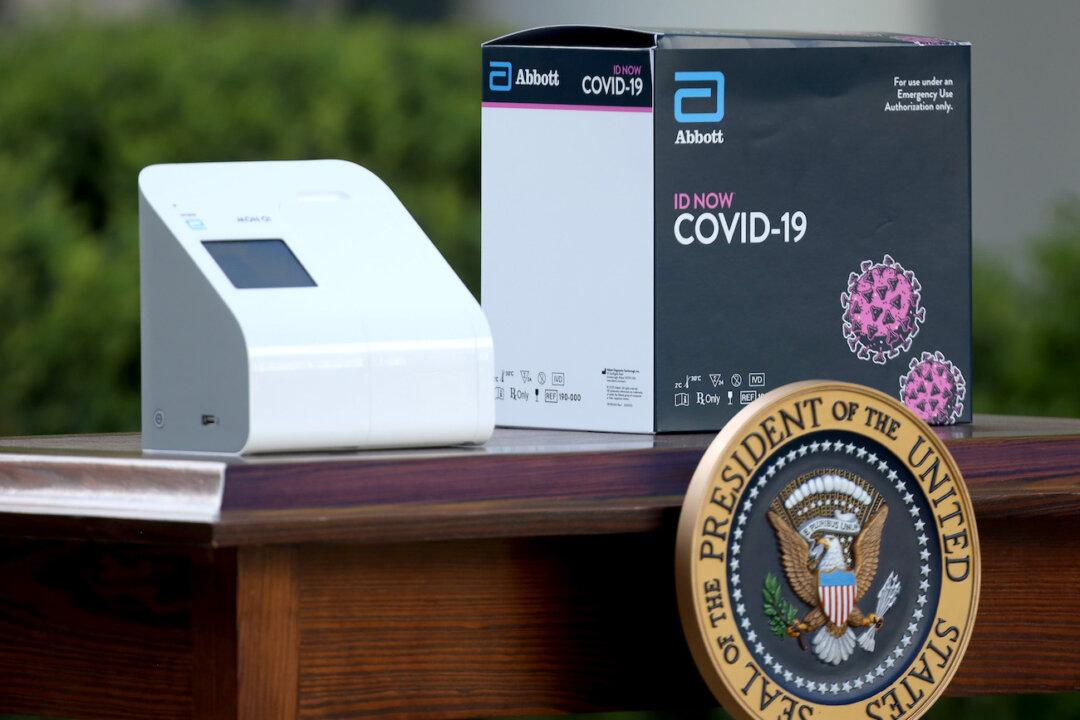The U.S. Food and Drug Administration (FDA) on Thursday said that Abbott Laboratories’ point-of-care test, “Abbott ID NOW,” which has been widely used to diagnose COVID-19 in under 15 minutes, could potentially yield inaccurate results.
“Specifically, the test may return false negative results,” the FDA said in a release, citing preliminary data that the agency says it is now “evaluating.” A false negative result would mean that the test falsely cleared an individual of infection.




